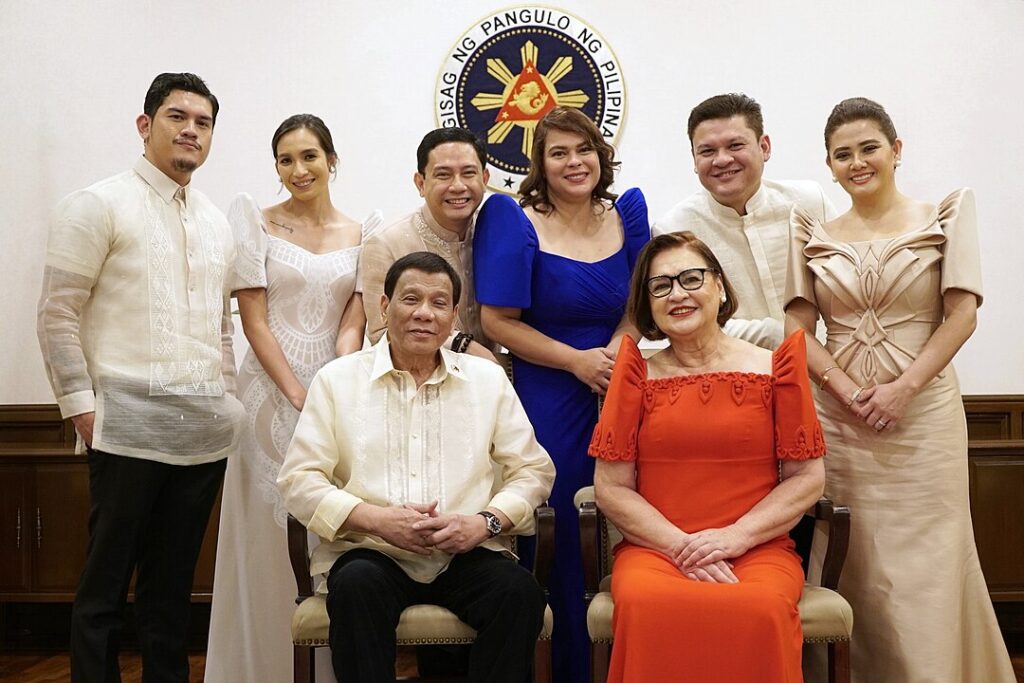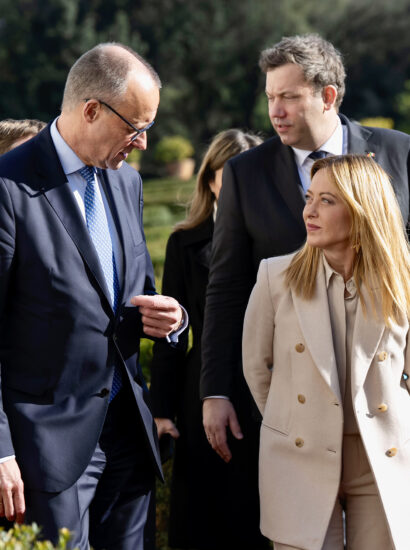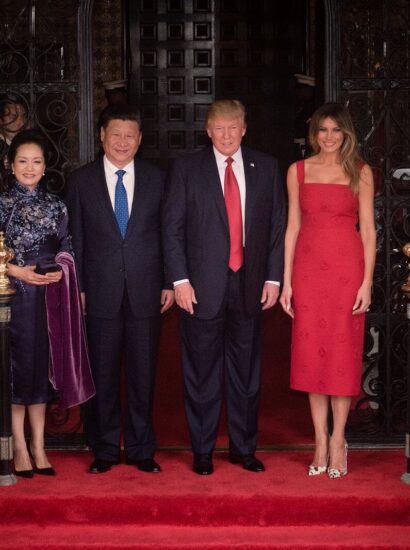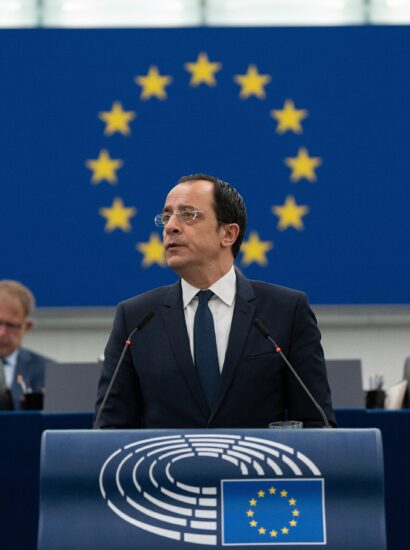Offsprings of well-known parents frequently face difficulties in life. They are typically assessed based on their parents’ accomplishments, whether in the arts or sports. This isn’t always equitable, especially in politics. Political dynasties, ranging from Thailand to Indonesia, highlight the region’s inability to establish strong and functional institutions. The heirs of these families are often called nepo babies.
Divisive Dynasty Brought Back by a Thai Heiress
Paetongtarn, or as her close friends and family call her, Ung Ing, became Thailand’s youngest-ever Prime Minister at only 37. She is the third member of the influencer Shinawatra family to hold the top position. Her father, Thaksin (Prime Minister: 2001-2006), and her niece, Yingluck Shinawatra (PM between 2011-2014), also served as leaders of the country.
Paetongtarn was raised and educated as a kind of political princess. Born in Bangkok in 1986, she was educated in elite schools before attending Chulalongkorn University, where she received a BA degree in Political Science. She then continued her studies in England at the University of Surrey, where she received her MSc in International Hotel Management.
She wasn’t a hard learner by her own admission: “When it was time to study, I studied a lot,” she says. “When it wasn’t, I didn’t study at all!”

Paetongtarn Shinawatra Prime Minister of Thailand (Source: PR Thai Gov. Twitter account)
Meanwhile, her father was shaking up the country’s staid politics when he was first elected Prime Minister in 2001. A year after his re-election in September 2006, the Thai army attempted a successful coup against Thaksin while he was abroad.
Paetongtarn’s father’s tenure as head of government was fraught with controversy: In 2003, his “war on drugs” resulted in some 2800 extrajudicial killings. Meanwhile, the Tak Bai incident occurred during his crackdown on the Islamic insurgency in Thailand’s south. On October 25, 2004, security personnel from various Thai army and police units were mobilized to disperse Muslim protesters outside a police station in Tak Bai district. Thaksin was subsequently convicted of corruption, but he denied the charges and fled to Dubai. But his populist movement, based on courting rural voters, didn’t disappear.
In 2011, another Shinawatra government was appointed, headed by Thaksin’s sister, Yingluck. In 2014, it too was overthrown by the military. Yingluck has also been charged with corruption. She – not surprisingly – insisted the charges were politically motivated.
After graduation, Paetongtarn returned to Bangkok to take up a position in Rende Development, a family-run hospitality firm with a portfolio of hotels and golf courses. There, she served as deputy to her CEO older sister, Pintongta. Life wasn’t hard for her at all. In 2021, with a financially secure footing, Paetongtarn decided to try herself out in politics.
Although she has never held elected office, she was a near-constant presence on the campaign trail in the 2023 elections when she was one of the Pheu Thai party’s Prime Minister candidates, giving birth just two weeks before election day. Thaksin returned to Thailand after 15 years of exile only last year, on the day Pheu Thai formed a coalition government.
Pheu Thai was founded by Thaksin Shinawatra and is the main political vehicle for the Shinawatra family. Officially, Thaksin is not even a member of Pheu Thai. But even in exile, he constantly interfered, often to the detriment of his party. He is still presumed to be Pheu Thai’s main financial backer. Paetongtarn was eventually appointed as Prime Minister after a questionable decision of the Constitutional Court, which dismissed the ruling Srettha government on 14 August 2024.
Thailand is a long-time ally of the United States, so it matters a lot to Washington how stable the Paetongtarn government will be.
In addition to hosting military exercises, Thailand provides the U.S. military with access to key facilities, particularly the strategically located U-Tapao airbase and Sattahip naval base. While the United States alliances in Asia have flourished in recent years, the U.S.–Thailand alliance has largely languished.
Nepos in Other Southeast Asian Nations
The dominance of political families is mirrored in the business sector and local politics. It reflects a broader failure to build robust and effective institutions to distribute power.
In addition to Paetongtarn’s story, four other Southeast Asian nations are led by the children of former rulers. Ferdinand “Bongbong” Marcos Jr. in the Philippines, Hun Manet in Cambodia, Sonexay Siphandone in Laos, and Sultan Hassanal Bolkiah in Brunei.
In Myanmar, Aung San Suu Kyi, daughter of founding father Aung San, was the elected leader until she was deposed in a military coup in 2021.
Subianto Prabowo, the outgoing government’s defense minister, won the Indonesian elections in April. Prabowo himself is a son-in-law of former authoritarian leader Suharto.
The nationalist Prabowo’s running mate is Gibran Rakabuming, the eldest son of President Joko Widodo, who was forced to step down after his second term.
The triumph of Bongbong Marcos in the 2022 Philippine presidential elections reflected the continuing dominance of political dynasties in the country’s political life.
Two years ago, the Marcoses emerged again as the most powerful political family. Voters in East Asia’s oldest democracy have returned the dictator’s son to power more than three decades when widespread anger drove out the notoriously corrupt Ferdinand Marcos and his wife Imelda, who ruled the Philippines with an iron fist. At the helm is Marcos Jr, who returned as president, a position his father held for two decades. His sister will be a senator until 2025; his son was elected a congressman; and his first cousin, Martin Romualdez, became speaker of the House of Representatives. Marcos Jr.’s relatives have also maintained their influence in Ilocos Norte province and Tacloban City.

President Rodrigo Roa Duterte poses for a photo with his family in July, 2018.
Though Bangladesh is situated only in the neighborhood of the region, after weeks of anti-government protests, the Bangladeshi people toppled longtime Prime Minister Sheikh Hasina. Hasina – a former pro-democracy icon – whose critics said had become increasingly autocratic during her 15-year rule. The 76-year-old former leader is the daughter of Sheikh Mujibur Rahman, the chief architect of Bangladesh’s separation from Pakistan in 1971, who went on to become the first President (1971-72; 1975) and Prime Minister (1972-75) of independent Bangladesh.
Hun Manet, the son of the former Cambodian prime minister and the army chief, is the figurehead of his family’s generational transition. In August 2023, he took over as prime minister from his father, who has held the position since 1985.
It can be particularly problematic in a family business when the junior takes over, but the senior refuses to let go. That wasn’t the case with the Hun’s transfer of power. Parliament’s approval is a mere formality, thanks to the 120 out of 125 lawmakers who belong to the Hun clan-led Cambodian People’s Party.
Other long-serving ministers have passed the baton to their offspring in line with the Hun power shift, sometimes in the same portfolio, creating quasi-dynastic hereditary courts. Still, the 122 percent increase in the number of secretaries and undersecretaries of state to an astronomical 1422 positions spread across some 30 ministries was the latest example of patrimonial bloat in a country already plagued by corruption and nepotism.
Different Power Methods in Different Environments
In Southeast Asian democracies, nepo babies benefit from name recognition and support networks. Voters seemed to be attracted to the perceived stability of known names. That has happened in Indonesia and the Philippines.
In the latter, the Duterte family was the other big victors of the latest election in addition to the Marcoses. As President Rodrigo Duterte stepped down, he succeeded in expanding his family’s influence with the election of his daughter, Sara, as vice president. While his eldest son was re-elected to Congress, his younger son was elected mayor of Davao City, a post that both Duterte and his daughter Sara have held. With his children secured in key positions in the government, he can go back to Davao without worrying too much about his pending case at the International Criminal Court.
However, in authoritarian systems, powerful families can manipulate the political system to their own advantage more directly. As we saw in the Cambodian case, Hun Sen is indispensable to his self-image and remains the personal guarantor of a political order.
In which, the state and its institutions have been almost completely undermined by patronage and informal networks.
The Playground of Great Powers
While nepotism and patronage networks are widespread in politics worldwide, political families are resurrecting remarkably in the region. Southeast Asia, home to over 670 million people and boasting the world’s fifth-largest economy combined, has transformed into a hotbed of geopolitical rivalry between China and the United States.
Foreign business executives and diplomats must comprehend these family dynamics if they wish to succeed in this country and acquire power and wealth.
For instance, the Cambodian-Chinese bilateral relationship, which is partially neo-colonial, has been solid. According to satellite images, at least two Chinese ships, including the corvette Wenshan, have been based at Cambodia’s Ream Naval Base between December 2023 and May 2024. Consequently, Beijing has at last achieved its long-held goal of gaining military access to the Gulf of Thailand, something it has cherished since the 1960s. However, later the Cambodian government refuted this, citing a constitutional violation pertaining to the permanent stationing of foreign troops.
Moreover, these steps from Phnom Penh of the Chinese embrace likely violate or ignore the key security interests of neighboring countries such as Vietnam.
Indonesia adeptly follows a hedging strategy towards competing superpowers. Jakarta actively participates in Western cooperation mechanisms aimed at containing China regionally. Exploiting its stable geopolitical position, Indonesia pursues an active foreign policy, hosting the G20 summit in 2022 and chairing the Association of Southeast Asian Nations (ASEAN) last year.
For Better and for Worse, Political Families’ Existence has been Essential in Southeast Asia
With the end of World War Two in Asia, new power centers emerged from the ashes of colonialism, frequently centered around extended families who assumed the role of leadership, displacing the mostly defunct pre-war monarchs and colonial administrations.
The majority of the families that comprised the new elites prior to the war were outsiders, competitors, and frequently less than likely choices to lead newly formed and reforming countries. However, they took advantage of the chance, found supporters in the new Cold War era, and became well-known as representatives of a brand-new postwar order.
The majority still hold power throughout their respective countries. Untangling the web of dynastic relationships is still a critical indicator of who Asia’s future leaders will be, and dynastic politics is still essential to understanding postwar Asia. The dynasties may not always consist of blood relations; instead, they are incredibly interdependent family networks that have developed over the past 80 years.
Nepo babies everywhere argue their parentage should not preclude them from any particular career. Nor does it mean they cannot be good at their jobs. Their grandfathers and fathers somehow contributed to the construction and development of these relatively young countries.








[…] EU’s approach to Southeast Asian countries, which are captured by political clans, as we see in Thailand not so long ago? How do you value […]